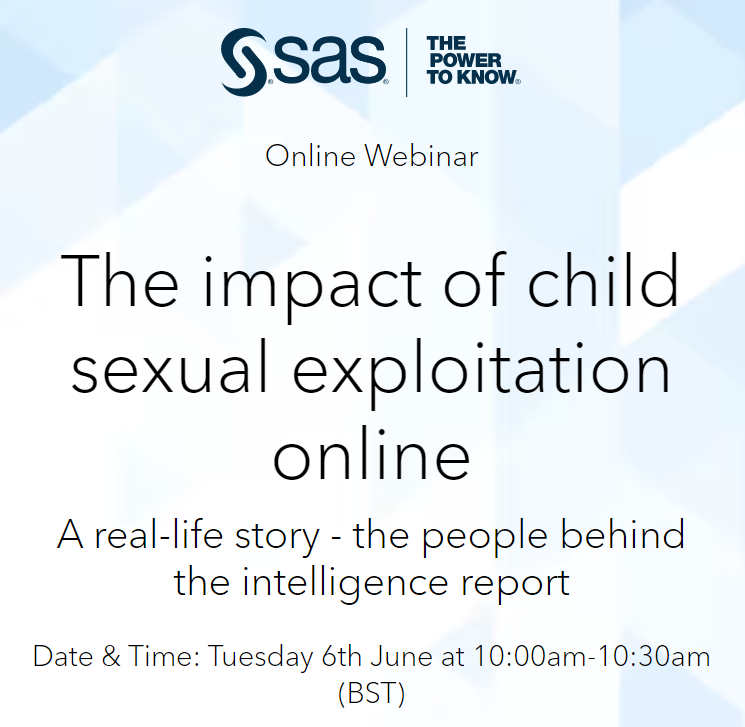The statistics on CSE are horrifying. According to the NSPCC, online grooming crimes have risen by 84% since 2017,[i] yet prosecutions fell by 50% and convictions by 45% between 2016 and 2021.[ii]
Police can learn a lot from survivors’ stories. The modus operandi of a predator and the strategies they use to conceal their crimes—partners and family members see these patterns at first hand, even if they don’t recognise them for what they are at the time”
Ashley Beck, SAS Institute
Part of the problem is that despite their best efforts, forces are struggling to keep pace with the sheer volume of referrals. Case backlogs increased by 70% between 2020 and 2021,[iii] and while that figure may be shocking, it shouldn’t be surprising. CSE investigations are extremely time-consuming, and police are under-resourced after years of budget cuts.
Moreover, the harrowing nature of the material that officers need to review to build a case against a suspect takes a heavy toll on their mental health and wellbeing—making it tough to keep investigation teams at full strength.
The result is that it takes longer—often much longer—to make an arrest than it should. A recent article in the Guardian reported that it can take up to 18 months to get from referral to arrest,[iv] when the recommended timescale is a week for high-risk cases, two weeks for medium-risk and 30 days for low-risk cases.
As a former officer myself, I know the horrendous pressure that CSE teams are under, and the gruelling work they do in very difficult conditions. But we can’t go on like this. That’s why I spent my last few years in the force designing tools to help accelerate CSE investigations and protect children and their families more effectively. And it’s also why I joined SAS—to develop the technology further and make it available to police forces across the UK and around the world.
Shortly after joining SAS, I met an amazing woman called Ailish Jamieson, who works on our HR team. She and her child had been living with a partner whom she absolutely trusted. He was a senior executive at a large company that works with the UK government, and he’d been vetted to the highest levels. Yet one day, officers turned up at her door to arrest him for serious CSE offences—six months after the case had been referred to them.
Working together, we’ve come up with some novel techniques to analyse patterns of predatory behaviour, using victim profiles, suspect profiles, and known modus operandi to assess risk more accurately and help police prioritise their response.”
Ashley Beck, SAS Institute
Even though I’d been working in the field for several years, listening to Ailish’s story opened up a new perspective for me. Her bravery in speaking openly about what her family has been through stood out, as well as her ideas on how police can learn from survivors. We started reviewing everything we knew about how police forces handle and analyse data in CSE cases, and how we can harness technology to help.
Soon, we’d recruited a team of seven brilliant women from across SAS with skills in everything from statistical analysis to linguistics. Working together, we’ve come up with some novel techniques to analyse patterns of predatory behaviour, using victim profiles, suspect profiles, and known modus operandi to assess risk more accurately and help police prioritise their response. We’re also keen to work on preventative messaging to help children, parents and communities understand the risks, identify predatory behaviour, and keep safe online.
Our vision is hopeful. Forces’ ability to detect and track CSE activity online has improved significantly over the past few years. Predators should know that however cleverly they try to conceal their tracks, they have no chance of flying under the radar. And with the new technology we’ve been working on, it won’t be long before they hear officers knocking at their door.
To learn more about how CSE criminality and police investigations impact families, and what forces can learn from survivors’ stories, join SAS on Tuesday 6th June at 10am BST for a webinar with Ashley Beck and Ailish Jamieson. Register for free HERE.



